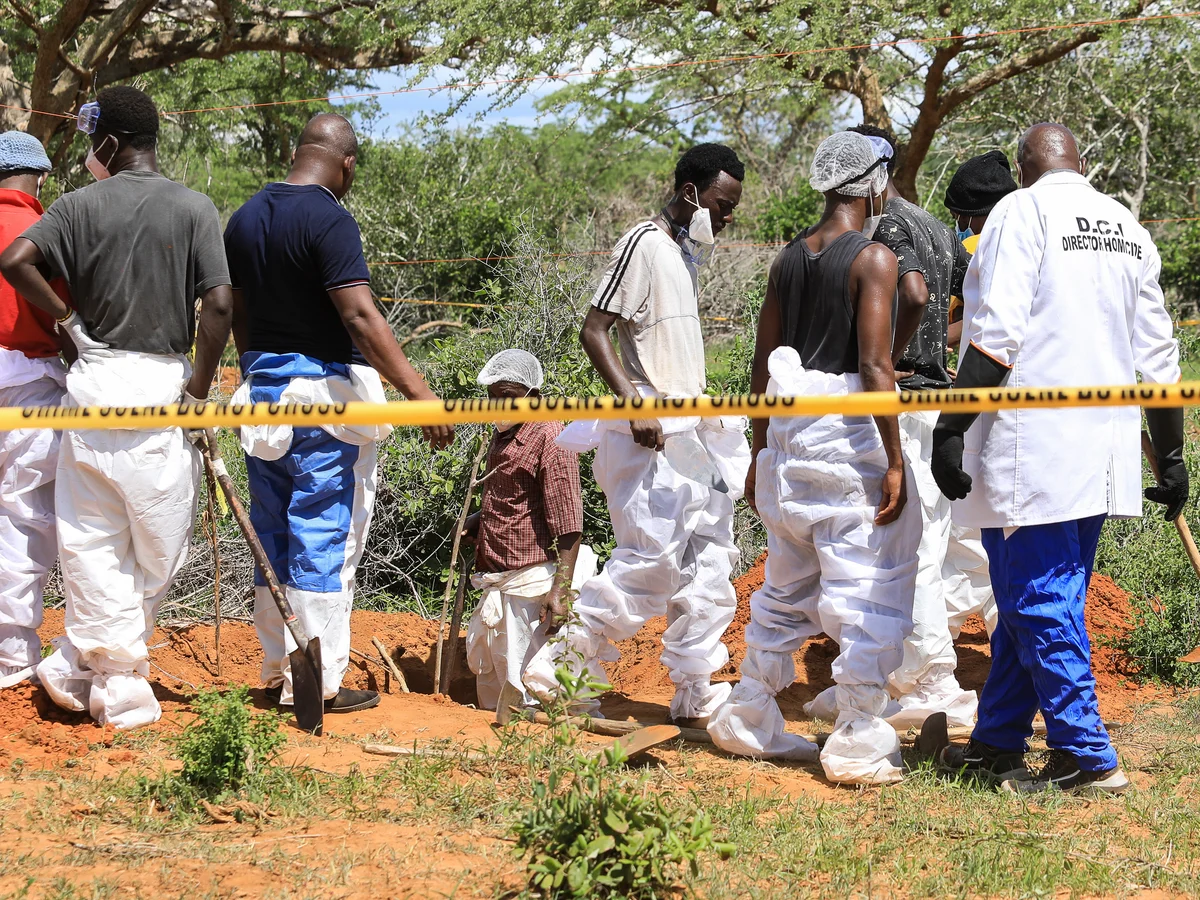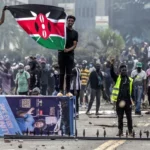Fresh exhumations in coastal Kenya have revealed dozens more bodies linked to a deadly religious cult, intensifying scrutiny over how extremist teachings continue to exploit vulnerable communities.
Investigators say the victims were persuaded by sect leaders to starve themselves to death, believing it was the only way to meet God.
The latest discovery, made in the forests near Malindi, adds to a grim toll that has haunted the nation since the 2023 Shakahola Forest incident. That tragedy shocked the world after hundreds of bodies were uncovered, drawing comparisons to some of the darkest episodes of cult manipulation in recent history.
Officials confirm that at least 32 new bodies have been exhumed in recent weeks. Forensic teams are carrying out DNA sampling and autopsies, while security agencies continue to hunt down more suspected burial sites. Eleven individuals have already been detained in connection with the case.
The cult, reportedly linked to Good News International Ministries, was led by controversial preacher Paul Mackenzie, who is facing multiple charges including terrorism and murder. Critics argue that the government has been too slow in regulating fringe religious movements, leaving citizens vulnerable to exploitation.
Also Read; African Leaders Gather To Boost Continental Trade
Civil society groups and religious scholars point to a broader failure of social systems. Many victims come from economically disadvantaged backgrounds, where limited access to education and opportunity makes people more susceptible to radical messages. In these communities, charismatic figures can easily manipulate faith for personal gain.
The crisis in Kilifi is not an isolated event. Around the world, societies have grappled with destructive cults and spiritual fraud. From the mass suicides orchestrated by the Peoples Temple in Jonestown, Guyana, to the rise of doomsday groups in Asia and Latin America, the pattern is chillingly similar: a mix of fear, blind devotion, and manipulation that turns faith into a weapon.
Experts warn that such groups thrive where governance is weak and oversight of religious organizations is minimal. The Kilifi case has reignited debates about whether countries should adopt stricter laws governing faith-based institutions, financial transparency, and community monitoring. Without reforms, observers caution, similar tragedies may occur again — not just in Africa, but worldwide.







